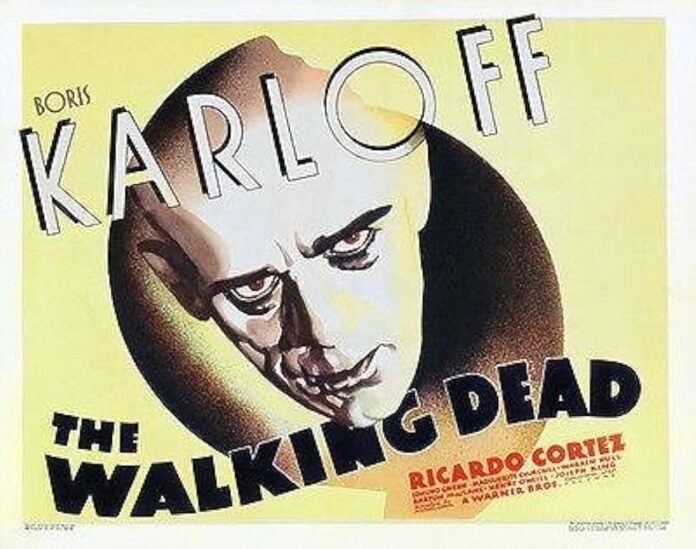“The Walking Dead” (1936) is not to be confused with the popular television series of the same name; instead, it is a classic horror film directed by Michael Curtiz, a maestro of the silver screen. With a deft touch, he immerses us in a world where the macabre dances with morality.
In this creepy cinematic venture, Curtiz weaves a tale where the shadows of the supernatural intertwine with the stark reality of a justice system gone awry.
As we traverse the dimly lit corridors of the prison, Curtiz invites us to question the fine line between life and death, justice and vengeance.
Creating an unforgettable experience that lingers in the minds of those who dare to step into “The Walking Dead.”
“The Walking Dead” (1936) is a film that truly captures the essence of suspense and horror, and Michael Curtiz’s direction is exceptional.
The way he uses shadows and light to create a spooky and unsettling atmosphere is genuinely remarkable.
Also Read More: Is Nicholas Duvernay Related To Ava Duvernay? Relationship And Family
Special Halloween Edition: “The Walking Dead” (1936)
Certainly! In classic horror, Michael Curtiz’s 1936 Warner Brothers film, “The Walking Dead,” featuring the iconic Boris Karloff, should not be confused with the more recent AMC television series depicting a zombie apocalypse.
Instead, it stands as a subtle and atmospheric masterpiece appreciated by horror enthusiasts.
Interestingly, the movie’s enhancement can be attributed to the Hays Office, the enforcer of the strengthened Production Code.
Despite historical disdain for the horror genre, the mid-1930s saw increased pressure from British censors, a crucial market for Hollywood.
Boris Karloff, the film’s star, played a pivotal role in preventing the movie from becoming a crude shocker.
Details about the original script’s disparities and the finished film come from Karloff’s personal script, annotated with his insights, as revealed by horror film historian Greg Mank in “The Walking Dead” DVD commentary.
For Karloff, this film marked his debut with Warner Brothers after achieving stardom in James Whale’s 1931 “Frankenstein.”
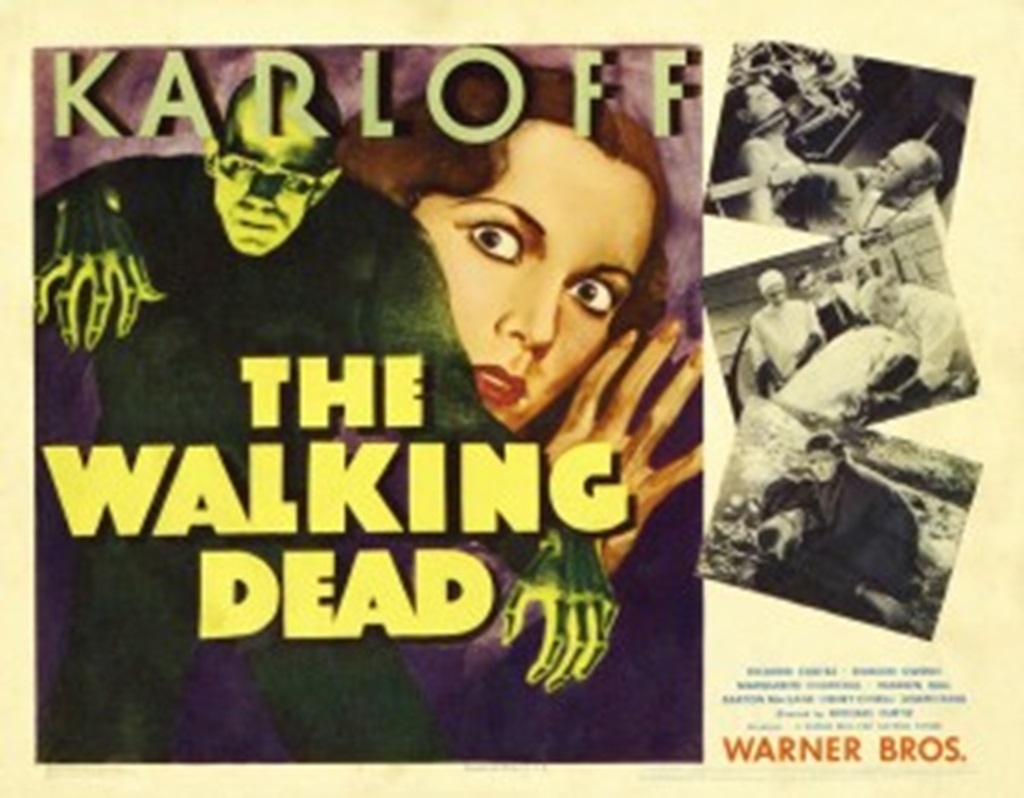
His earlier stint with Warners in 1931 included a role in Alfred E. Green’s gangster comedy-drama “Smart Money,” where he played a minor part.
However, Mervyn LeRoy’s “Five Star Final,” a potent critique of yellow journalism and a notable social protest melodrama, gave Karloff his most significant pre- “Frankenstein” role.
In the film, Karloff portrayed Isopod, a disgusting and conniving newspaper reporter who, expelled from divinity school for misconduct, specialized in exploiting his victims under the guise of a minister.
This role showcased Karloff’s versatility, even in comedic aspects. Subsequent appearances included a butler role in William McGann’s Douglas Fairbanks Jr. comedy, “I Like Your Nerve.”
The Mad Genius: Warner Brothers’ Response to Universal’s Horror Success
During Boris Karloff’s 1931 tenure with Warner Brothers, “The Mad Genius” emerged as a prophetic venture, marking the studio’s second attempt to rival Universal’s box office hit, “Dracula,” starring Bela Lugosi.
Michael Curtiz, recognized as Warner’s versatile director, took the helm for “The Mad Genius,” following his earlier horror projects, “Doctor X” (1932) and “Mystery of the Wax Museum” (1933).
Karloff’s involvement in “The Mad Genius” was an intriguing twist of fate. Director Michael Curtiz, anticipating a Russian actor based on Karloff’s name, was surprised to meet the soft-spoken Englishman instead.
Despite the initial misconception, Karloff’s enthusiasm secured him a role as Frankie Darro’s abusive Russian father in the film.
“The Mad Genius” marked the end of John Barrymore’s career in horror movies and his tenure with Warner Brothers as he transitioned to MGM on his brother Lionel’s advice.
Interestingly, Karloff, initially cast in a minor one-scene role, soon emerged as Hollywood’s preeminent horror star, a position he solidified with his iconic portrayal of Dr. Frankenstein’s monster.
Lon Chaney Sr., a legend of the silent era, played a pivotal role in shaping Karloff’s career.
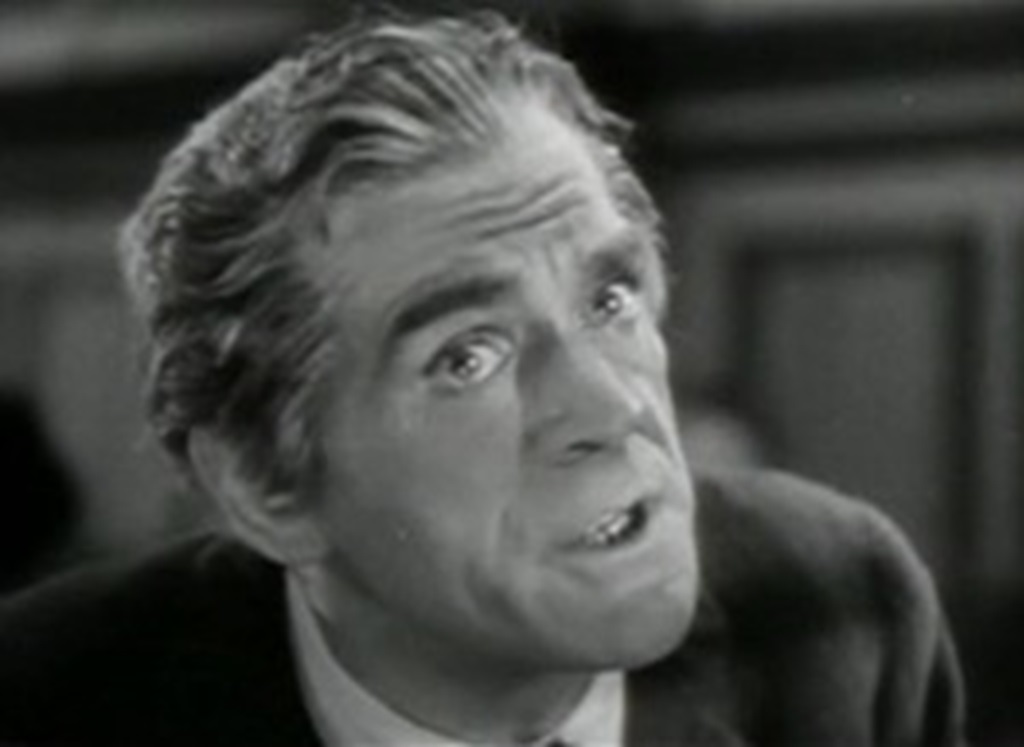
Chaney’s advice to find a unique skill set resonated with Karloff, and his ability to elicit both fear and sympathy in audiences set him apart.
“The Walking Dead,” directed by Michael Curtiz, showcased Karloff’s exceptional talent.
The film ingeniously shifted genres, starting as a typical Warners gangster picture before unveiling its horror elements.
The narrative unfolds in a major American city, revolving around a trial, corruption, and a nefarious plot against an incorruptible judge.
With its clever narrative twists, this film stands as a testament to Karloff’s unique ability to captivate audiences and marked a crucial milestone in the evolution of horror cinema.
The Machination Unfolds: Ellman’s Tragic Descent into a Web of Deceit
In this climactic segment of “The Walking Dead,” Boris Karloff takes center stage as John Ellman, a gentle and unemployed musician grappling with the aftermath of a manslaughter conviction bestowed upon him by the unforgiving Judge Shaw.
Driven by the desperate pursuit of employment, Ellman falls prey to the sinister machinations of gangster Loder and his accomplice Nolan.
Lured by the false promise of potential work, Ellman finds himself at Loder’s house, only to have his hopes mercilessly shattered.
Playing a deliberate game, Loder dispatches the hired enforcer Trigger to shadow Ellman, weaving a dark tapestry of manipulation and deceit.
Trigger, feigning recognition, befriends Ellman under the guise of a private detective seeking assistance in an investigation.
With financial woes pressing upon him, Ellman reluctantly agrees to spy on the subject of Trigger’s investigation, unaware that the target is none other than Judge Shaw.
The stage is set for a chilling turn of events as Ellman unwittingly becomes entangled in a sinister plot against the incorruptible judge.
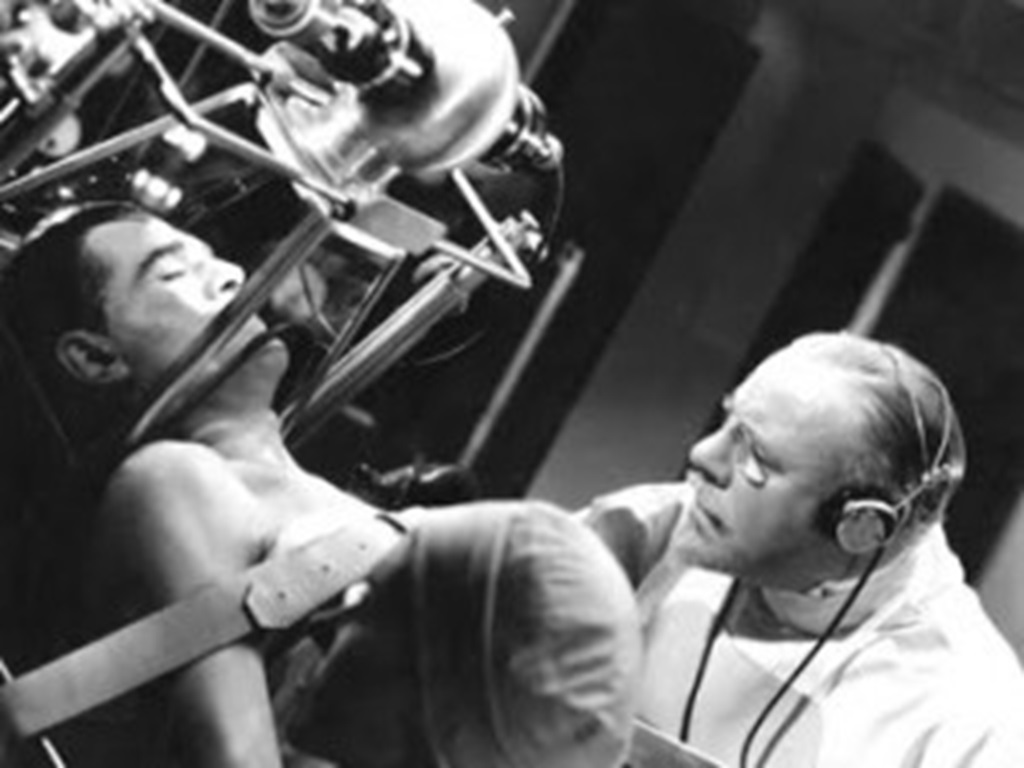
As the night unfolds, Trigger carries out the heinous act, eliminating Judge Shaw and strategically placing the lifeless body in Ellman’s car.
However, fate takes a cruel twist when a young couple, Jimmy and Nancy, inadvertently becomes witnesses to Trigger’s actions.
Threatened into silence by Trigger, the couple is coerced into withholding crucial information during Ellman’s trial for the murder of Judge Shaw.
The intricacies of the plot deepen, revealing the true depth of Ellman’s tragic descent into a web of deception, manipulation, and impending doom.
The trial unfolds as an orchestrated spectacle, with Nolan, Ellman’s defense counsel, delivering a deliberately lackluster defense that raises eyebrows, even for the prosecuting DA Werner.
The farce reaches its climax when Ellman is unjustly convicted of Judge Shaw’s murder and sentenced to death.
Director Michael Curtiz skillfully interweaves scenes of Ellman’s final days on death row with Jimmy and Nancy’s internal struggle over whether to unveil the truth and save him from execution.
Curtiz’s penchant for death house themes surfaces, a recurring motif in Warner Brothers’ films, oscillating between comedy and raw melodrama.
As the couple eventually gathers the courage to disclose the truth, their revelation coincides with the governor’s call to halt the execution, creating a morbid twist of fate.
The narrative takes a dramatic shift when it is revealed that Jimmy and Nancy work for Dr. Beaumont, a benevolent scientist Edmund Gwenn portrays.
Unbeknownst to the audience, Beaumont has been experimenting with the Lindbergh heart, introducing an unexpected scientific dimension to the story.
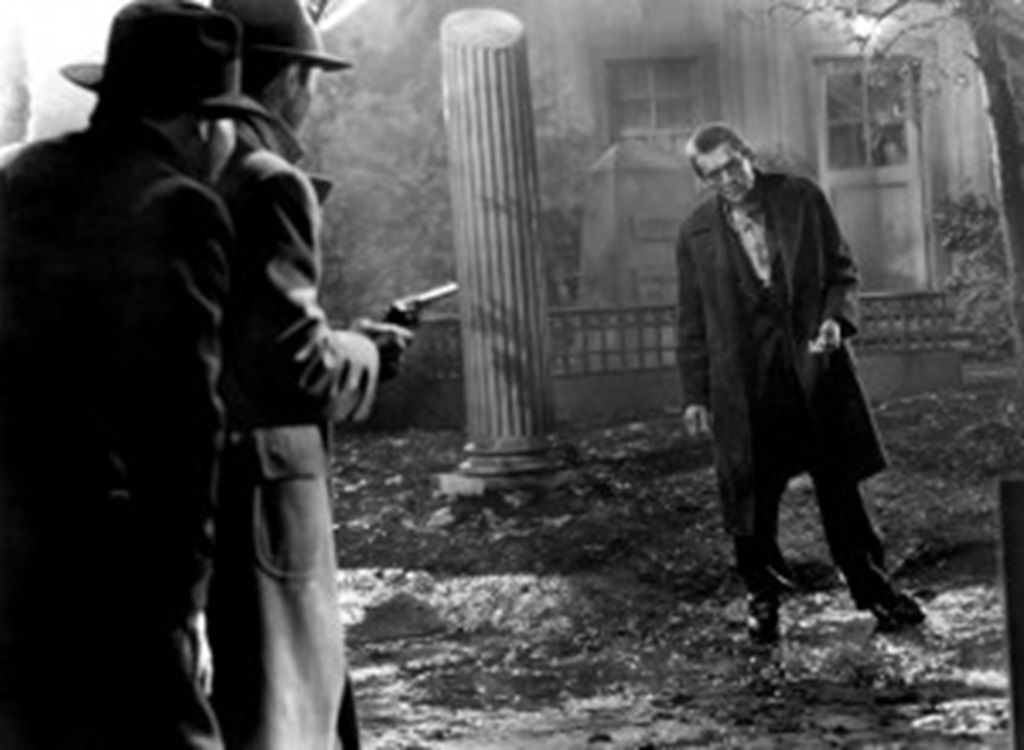
In a departure from the stereotypical “mad scientist,” Beaumont emerges as a compassionate character, albeit overly enthusiastic.
With Ellman’s execution underway, Beaumont, desperate to resurrect him, demands immediate access to the deceased musician’s body.
The subsequent resurrection scene marks the definitive transition of “The Walking Dead” into the horror genre.
Michael Curtiz references James Whale’s “Frankenstein” films by using similar electronic equipment and thematic elements in his creation scenes.
While Bernhard Kaun’s score echoes the iconic music from Whale’s “Bride of Frankenstein.”
In a notable deviation from the original script, Karloff’s character, Ellman, was initially intended to transform into a monstrous hybrid capable of scaling buildings and inflicting harm.
The Hays Office’s objections and Karloff’s strong disapproval of the concept prompted significant revisions to the script.
Karloff’s desire to portray more sympathetic characters and Warner Brothers’ interest in retaining him as part of their esteemed character actor lineup influenced the ultimate decision to transform the narrative accordingly.
Thus, “The Walking Dead” takes a chilling turn into the realm of horror, guided by Karloff’s electrifying performance and the twisted threads of fate that weave through the story.
The Resurrected Musician’s Dance with Fate
In the final cut of “The Walking Dead,” the recently revived John Ellman emerges with a mere physical transformation, emaciated with a distinctive white streak in his hair.
Plagued by amnesia, Ellman lacks recollection of his past life but develops an uncanny psychic instinct to discern friend from foe.
The film introduces a mysterious twist as Ellman’s memory is rekindled during a piano recital, where he recognizes a musical piece played by Nancy, linking back to a haunting melody from his past.
Strangely absent from Ellman’s recollections is any mention of his wife, leading to speculation about her fate, perhaps succumbing to illness during his incarceration.
Despite this void, Ellman’s story takes a dark turn as he becomes a pawn in a legal game orchestrated by Nolan, the lawyer who aims to exploit Ellman’s innocence for personal gain.
In a stunning revelation, the plot veers into horror territory, marked by a resurrection scene reminiscent of James Whale’s “Frankenstein” films.
Ellman’s journey is intriguing as Dr. Beaumont attempts to reintegrate him into society through a piano recital attended by those who wronged him.
The original script envisioned a monstrous transformation and physical vengeance, but the revised version elevates the film from a good horror picture to a great one.
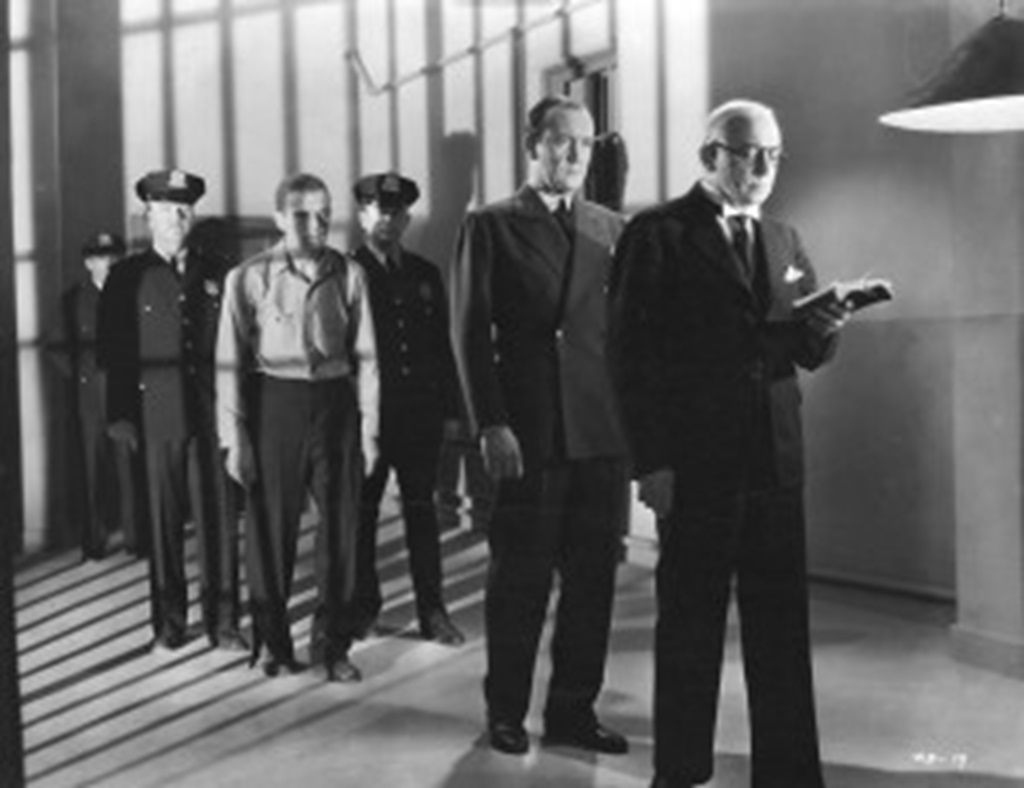
Post-recital, Ellman confronts each tormentor, forcing them into self-destruction through guilt and fear, showcasing poetic justice without Ellman lifting a finger.
The film navigates themes of fate, justice, and divine retribution, heavily emphasizing religious undertones in Ellman’s final words before his ultimate demise.
Despite the morbid fascination with death house themes, “The Walking Dead” resonates with audiences, prompting Warner Brothers to exercise Karloff’s contract option.
Karloff’s subsequent films for the studio, while not all reaching the same heights, included notable works like “West of Shanghai” (1937) and “Devil Island” (1939).
As Karloff’s career with Warner Brothers unfolded, the studio’s penchant for remaking its pictures became evident, showcasing the diverse range of characters Karloff portrayed on screen.
“The Walking Dead” remains a standout in Karloff’s filmography, a testament to his exceptional talent in the horror genre.
Also Read: Who Is Monica Berdnik, Richard Berdnik Wife? Kids And Family Details

